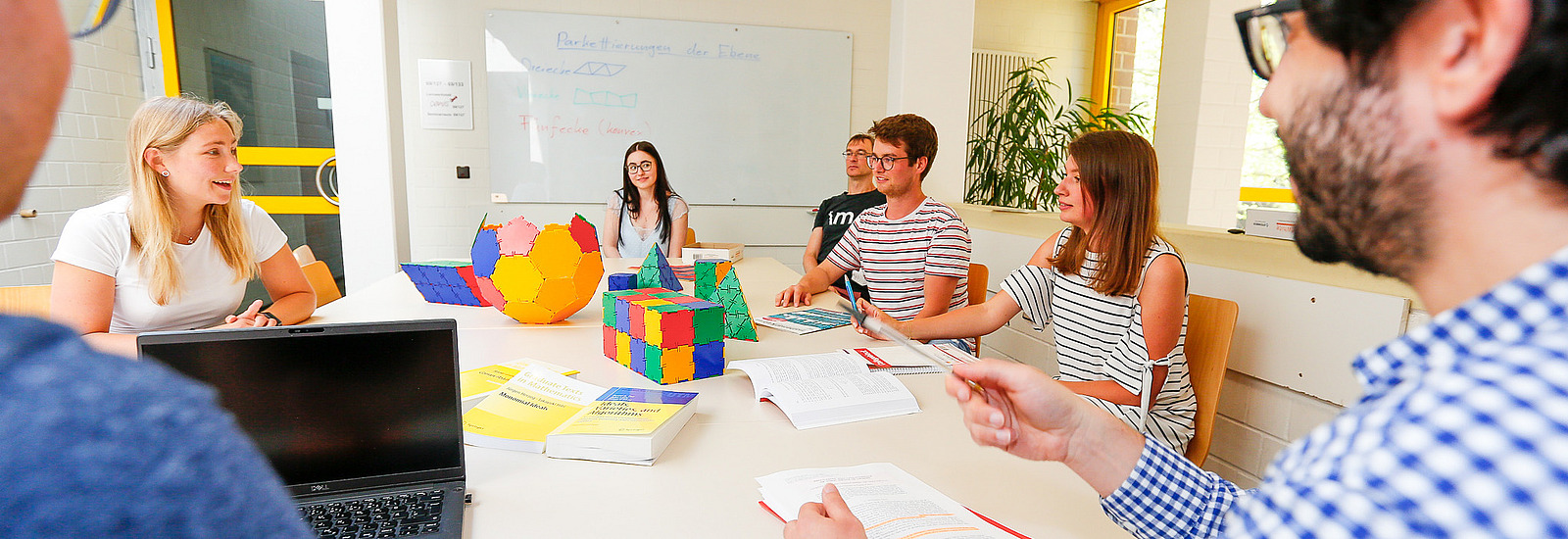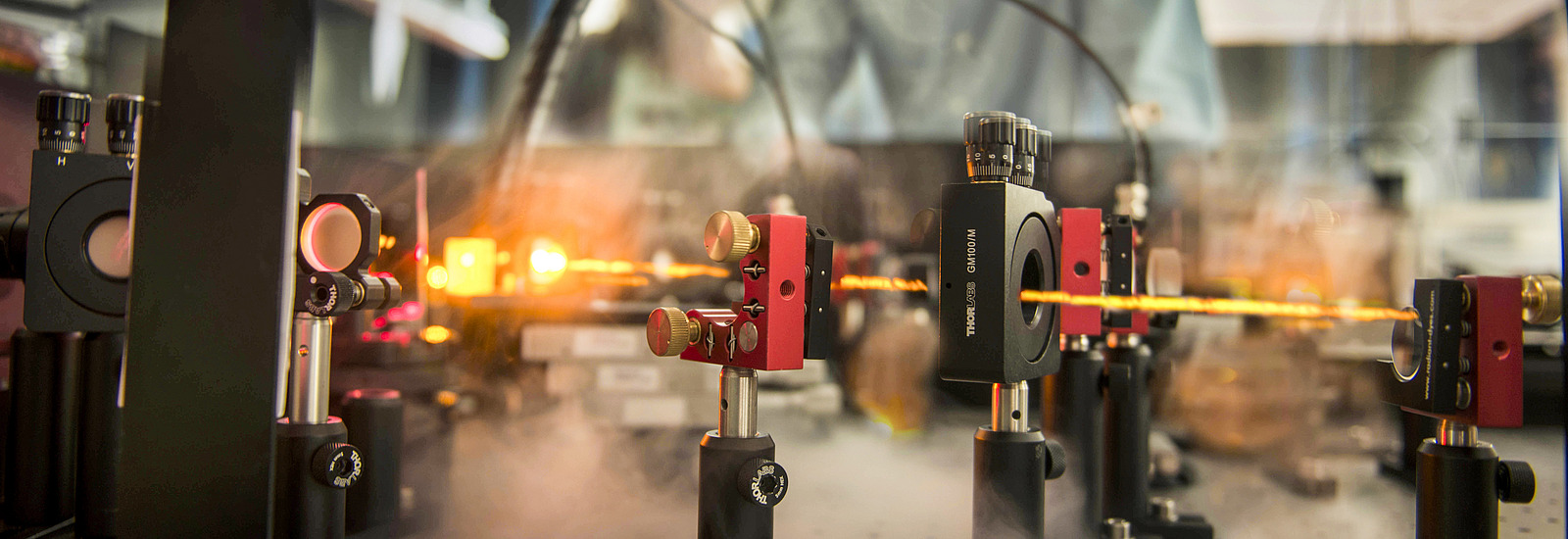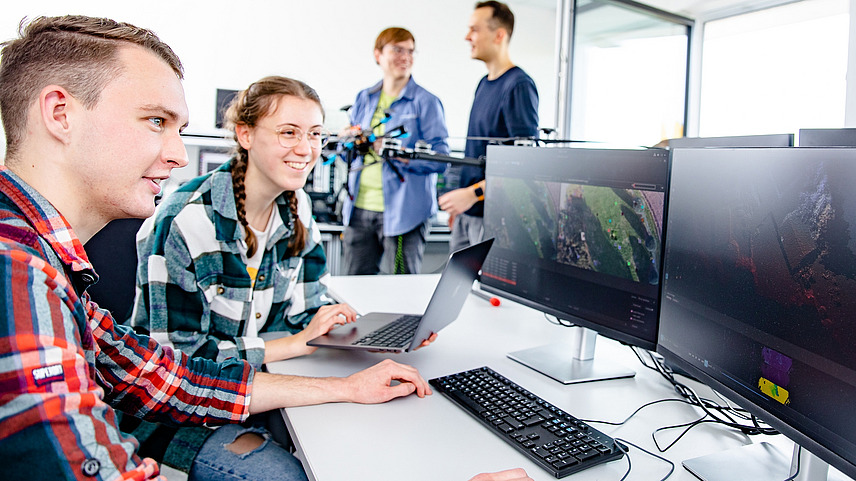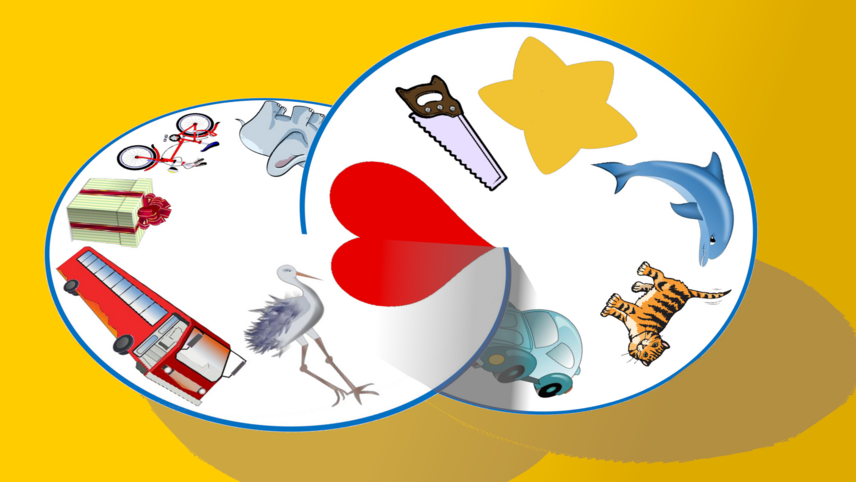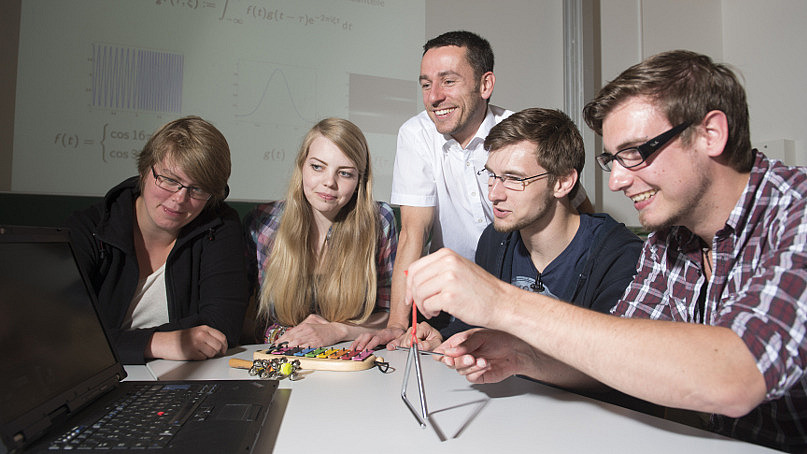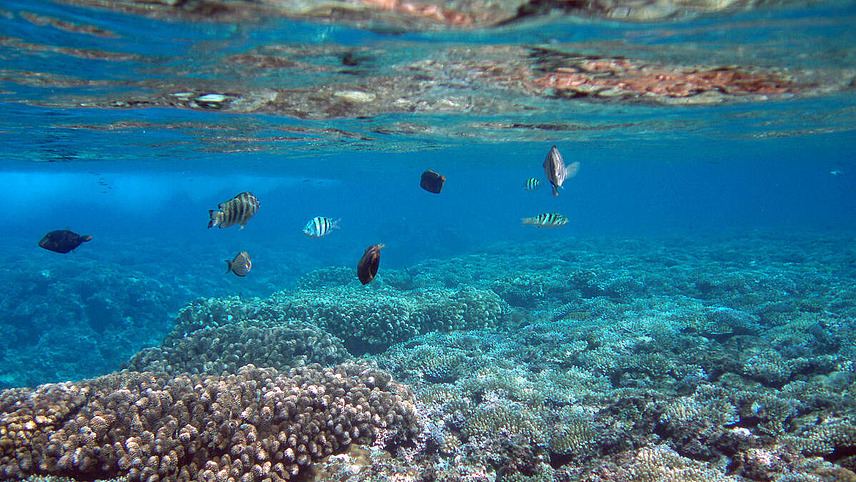Information Day
Teachers of mathematics, computer science and physics invite school pupils to an information day on 13 June 2025. From 9:30 a.m., upper secondary school pupils are welcome to visit the university's STEM campus between Albrechtstraße and Barbarastraße. Professors and staff from the faculty and the Central Student Advisory Service, as well as students and graduates, will give an insight into studying at Osnabrück University on this day. In various workshops, participants can carry out experiments in our laboratories, make their first programming attempts in our computer rooms or deal with theoretical questions and learn about completely new research results such as the "Spectre tile". At the "Market of Opportunities", graduates from our faculty will report on their work and give an insight into the career options available after graduation. Students will present their project work and look forward to chatting in the student council café. The central student advisory service will be on hand to answer questions.
Contact us
Prof. Dr Michael Gnewuch
Tel: +49 541 969 3516
infoMIP@uos.de infoMIP@uos.de
Supporting programme
from 9:00 a.m. Arrival and distribution of tickets for the workshops
9.30 a.m. Welcome by the Dean and the Dean of Studies. Graduates present their workplace and give examples of the career opportunities that a degree programme in STEM opens up.
10:30 - 13:30 Market of opportunities
Explore monuments in virtual reality, try your hand at parquet flooring with pentagonal tiles, try your hand at parking in "rush hour", test the driving simulator of a student project group and find out about other study projects. Talk to graduates and their employers, get information from the Central Student Advisory Service or talk to students in the student council café.
Workshops are offered at 11:00 and 12:15:
Workshops
The processor: A journey into the heart of the computer
Processors are the heart of every computer system, whether in a notebook, mobile phone or for controlling a car. They are used everywhere to perform highly complex tasks at breathtaking speed. But how do these little all-rounders work? In this workshop, we take a deep dive into the inner workings of a processor. We want to understand the basic functionality and design a small processor ourselves on the computer and bring it to life.
Hands-on spectroscopy: Determination of nitrate content in drinking water
High nitrate pollution in water is one of the main reasons for the deterioration of drinking water quality. It is therefore crucial to develop simple and rapid methods for determining this pollutant in order to ensure the safety and health of the population. Optical spectroscopy is particularly suitable for this purpose.
This practice-orientated workshop focuses on building your own spectrometer. Participants can then use this self-built device to determine the nitrate content in drinking water using spectroscopic methods. This hands-on approach makes it possible not only to acquire theoretical knowledge, but also to apply it in practice.
The game Dobble - and the maths behind it
Dobble is a card game in which there are eight symbols on each card. The aim is to discover the common symbol on two face-up cards as quickly as possible. Without maths, it is not so easy to design an extensive deck of cards and symbols in which two cards match exactly one symbol each. The cards somehow behave like non-parallel straight lines, which also intersect at exactly one point. In this workshop we will play, tinker and learn about the projective plane over finite arithmetic domains.
How to look at music
Music, like all other sounds, consists of sound waves that change over time. We understand these as a function of time and break them down into basic mathematical building blocks. We learn that musical notes are a suitable coding for music and why the concert pitch a1 sounds different on different instruments. Small and large musical instruments are very welcome.
Oceans in the climate crisis
TheCO2 emissions caused by us humans over the last 150 years have led to an increase in the earth's temperature of 1.2°C. Without the help of the oceans, it would actually have become much warmer. In this workshop, we will experimentally investigate where the effect of the oceans as a climate buffer comes from and what impact the rising CO2 concentration has on the oceans.
Fractal geometry: learning maths from nature
Natural structures such as trees or the vascular system of the human body are difficult to describe using school geometry. Fractal geometry provides a simple approach that gives us objects with exciting properties: For example, closed lines of infinite length that are the edge of a limited surface. In the workshop, we will calculate the properties of various fractals and talk about their applications, for example in video production.
Neural networks for beginners
Neural networks are one of the key technologies of artificial intelligence. In this workshop, you will explore how they work in practice and train your own small networks. You will learn about their capabilities and limitations and gain an insight into how this technology is used. The tools used will also enable you to use them in your own projects.
No programming skills are required!
Complex networks: The fascinating world of random graphs
In order to be able to analyse telecommunication networks, computer networks or social networks, for example, we would like to discover the world of random graphs together. What are possible modelling approaches? What can we still say about very different random graphs? And do we really know most of the people on our planet through seven corners?
Registration
Participation in the workshops is only possible after registration (PDF, 169 kB). The registration deadline is 1 June 2025.
We would like to thank the University Society for its kind support.
